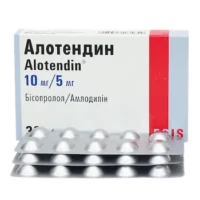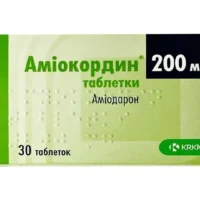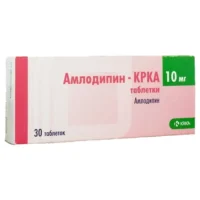Description
Lisinoprazid Tablets 20 mg/12.5 mg. №30
Ingredients
Each tablet contains 20 mg of Lisinopril and 12.5 mg of Hydrochlorothiazide.
Dosage
The usual recommended dose is one tablet once a day. It is important to follow the dosage instructions provided by your healthcare provider.
Indications
Lisinoprazid tablets are indicated for the treatment of hypertension in patients not adequately controlled with monotherapy. This combination medication helps lower blood pressure effectively.
Contraindications
Do not take Lisinoprazid if you are allergic to any of the ingredients, have a history of angioedema related to previous treatment with ACE inhibitors, or are pregnant.
Directions
Take Lisinoprazid tablets orally with or without food as directed by your doctor. It is important to continue taking this medication even if you feel well.
Scientific Evidence
Lisinoprazid tablets have been studied in clinical trials to evaluate their efficacy and safety in the treatment of hypertension. Research has shown that the combination of Lisinopril and Hydrochlorothiazide in a single tablet provides better blood pressure control compared to monotherapy with either drug alone.
One study published in the Journal of Clinical Hypertension demonstrated that Lisinoprazid tablets were more effective in reducing blood pressure levels compared to Lisinopril alone. The combination therapy also showed a good safety profile with minimal side effects.
Additional Information
- Storage: Store Lisinoprazid tablets at room temperature away from light and moisture.
- Side Effects: Common side effects may include dizziness, headache, or cough. Contact your doctor if you experience severe side effects.
- Interactions: Inform your doctor about all the medications you are taking to avoid potential drug interactions.





